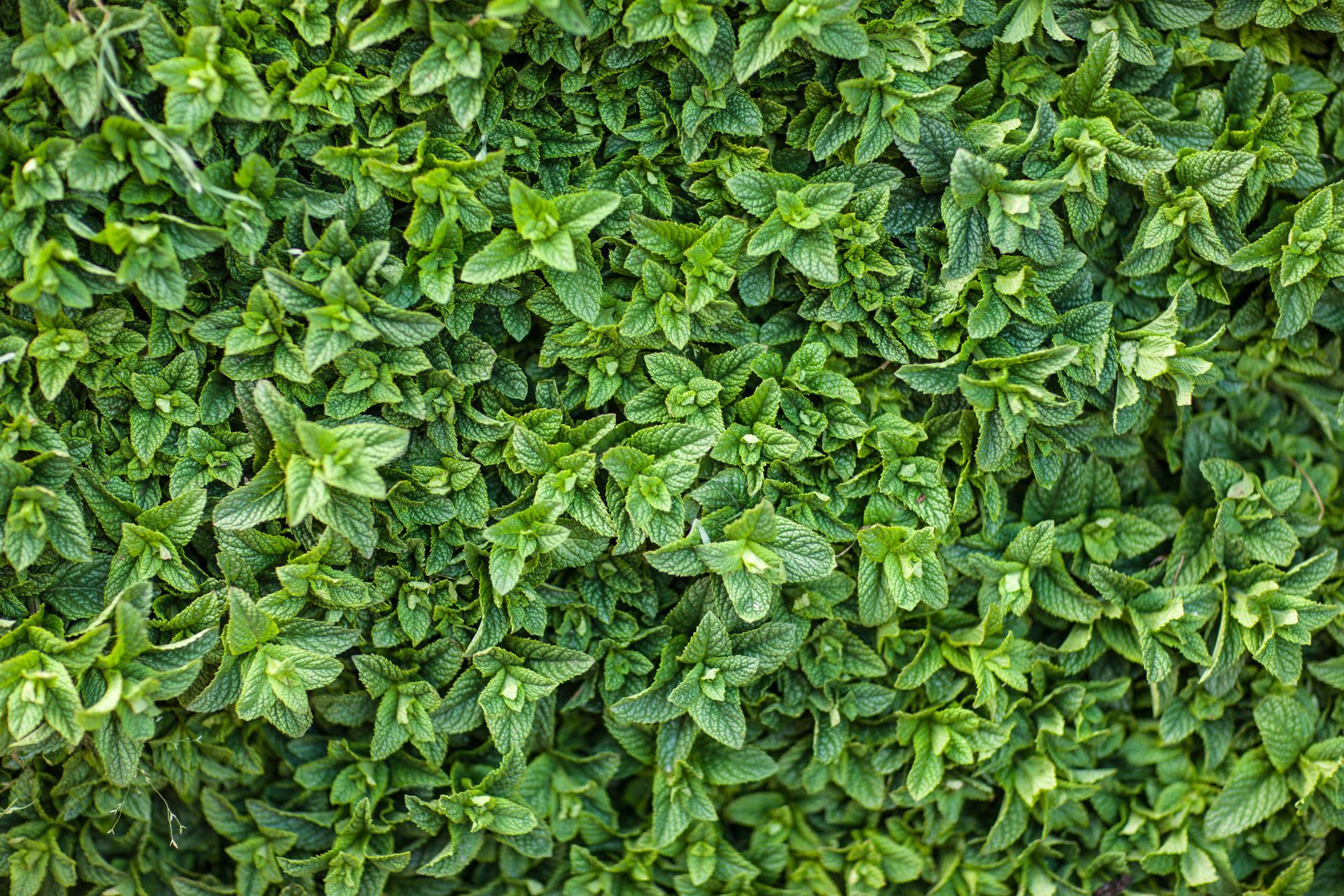Revolutionizing Agriculture: The Benefits of Hydroponic Farming
Jeanne Horlanda • April 15, 2024
Compared to traditional farming practices that rely on soil as a medium for nutrient absorption, hydroponic systems utilize containers filled with water and nutrient solutions, providing plants with optimal conditions for growth.
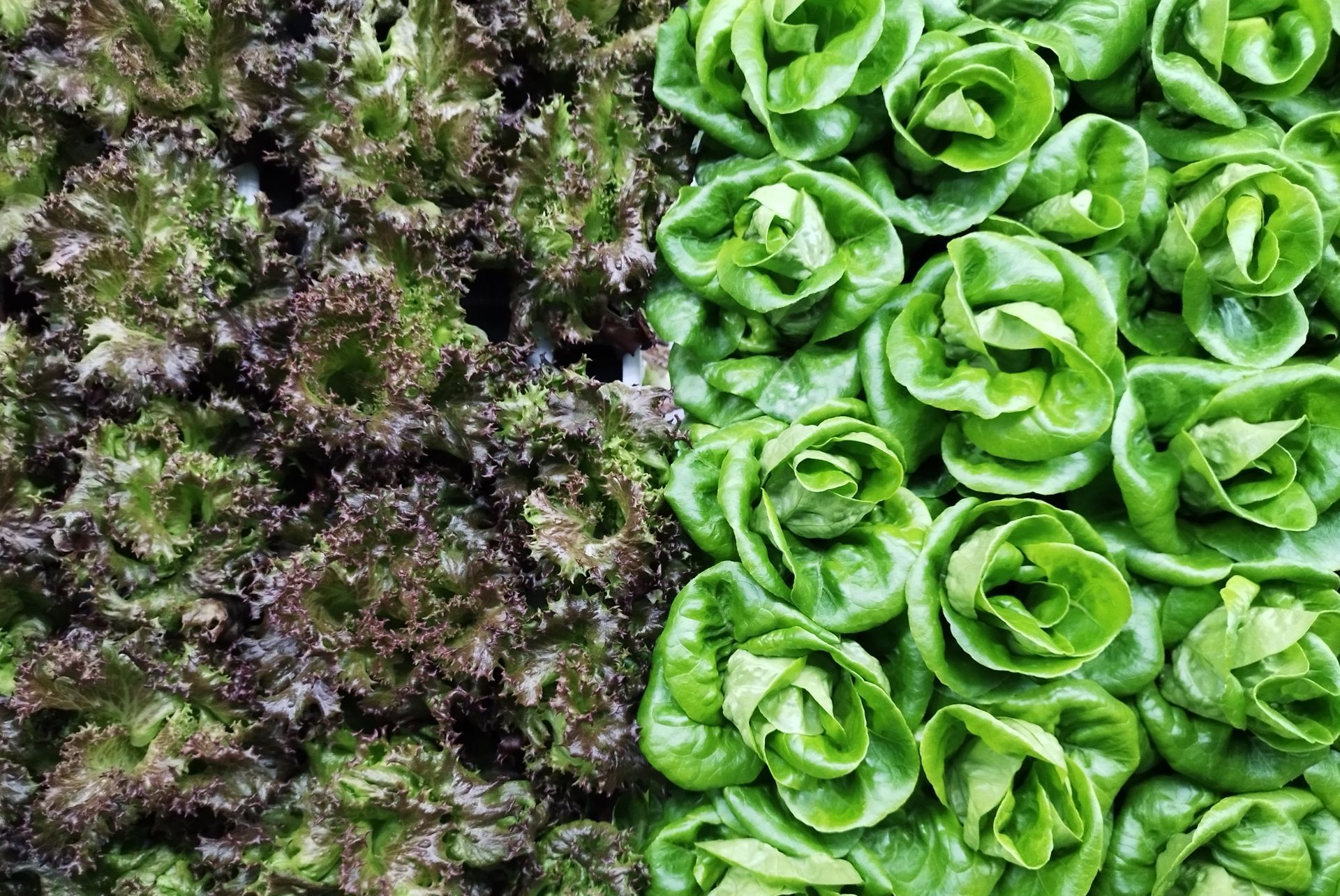
Traditional farming has always been the hearbeat of agriculture -- the very soul of food production. For generations, our farmers tended their crops with nothing but soil, sunlight, and water, creating bountiful harvests that nourish communities and support livelihoods. Fast forward now, as cities expand and our population grows, traditional agriculture finds itself at a crossroads, facing new obstacles unlike any before. As our world evolves and faces challenges such as rapid urban growth and environmental damage, farmers and agriculturalists are feeling the pressure of finding new ways to feed everyone sustainably. Now, is a better time than ever to understand hydroponic farming and revisit the benefits that it offers.
Hydroponic Farming
The concept of hydroponic farming dates back to ancient civilizations such as the Hanging Gardens of Babylon and the Aztec floating gardens. It is the method of growing plants without soil and using nutrient-rich water solutions to deliver essential minerals directly to the plant roots. Compared to traditional farming practices that rely on soil as a medium for nutrient absorption, hydroponic systems utilize containers filled with water and nutrient solutions, providing plants with optimal conditions for growth.
Modern hydroponic techniques emerged in the mid-20th century, pioneered by scientists experimenting with soilless agriculture for space missions and research purposes. Since then, hydroponic farming has evolved into a viable alternative to traditional agricultural methods, offering numerous advantages and opportunities for sustainable food production.
The Nitty-Gritty of Hydroponics
In modern hydroponic systems, plants skip the soil and get their essential nutrients, water, and oxygen delivered straight to their roots. Picture this: instead of digging into dirt, your plants absorb a tailor-made cocktail of water and vital nutrients that make sure they grow up big and strong.
But that's just the beginning. These savvy setups don't waste a drop by recycling water to keep plants hydrated while minimizing wastage. And let's not forget about oxygen—essential for healthy roots and top-notch growth. With these smart systems in place, every single root gets a breath of fresh air that promotes robust plant development.
Other than systematized water and oxygen management, modern hydroponics also boasts of high-tech features like temperature and humidity control, LED grow lights, and automated monitoring systems. This attention to detail ensures optimal growing conditions that help maximize yields and minimize stress for your crops.
The Benefits of Hydroponics
1. Water Efficiency
Hydroponic systems are big in water conservation and also allow for optimal water usage. Because of this, hydroponic farming is especially well-suited for regions that face water scarcity or drought conditions. By delivering precise amounts of nutrient-rich water directly to plant roots, hydroponic farming minimizes waste and ensures efficient use of this resource. Not only does this reduce the environmental footprint of agriculture but it also enhances the economic viability of farming operations through lowered water costs and mitigating the risks associated with water shortages.
2. Space Utilization
Efficient space use is a hallmark feature of hydroponic farming – particularly in urban environments where land availability is limited. Vertical hydroponic systems capitalize on unused vertical space and transform urban landscapes into thriving hubs of agricultural productivity. By stacking growing trays or towers vertically, hydroponic farmers can cultivate crops in multi-level structures, effectively multiplying the growing area without expanding horizontally. This innovative approach not only maximizes land utilization but it also allows urban farmers to capitalize on underutilized spaces such as rooftops, vacant lots, or even indoor environments. As cities continue to expand and populations grow denser, the ability to grow food vertically through hydroponic farming offers a sustainable solution to the challenge of feeding urban populations while minimizing the strain on limited land resources.
3. Year-Round Production
Because hydroponic farming operates in controlled environments, this allows farms to produce crops year-round, reducing dependency on seasonal variations and weather conditions. This means that fresh produce is made available, no matter the time of year.
4. Higher Yields
With hydroponic farming, plants get just the right mix of nutrients within perfect growing conditions. This usually results in bigger harvests and a much quicker growth process compared to traditional farming. In a nutshell, this allows for more fresh fruits and veggies year-round, making it easier for everyone to eat healthier. Plus, with higher yields, production costs drop, making fresh produce more wallet-friendly for folks on tighter budgets. Making it a win-win for both our plates and our pockets!
5. Reduced Environmental Impact:
In hydroponic farming, farmers cut back on chemical pesticides and fertilizers, curbing soil erosion and contamination. Unlike traditional methods that risk chemical runoff into our waterways, hydroponics keeps nutrients in a closed loop, safeguarding both our crops and environment. It's like giving Mother Nature a high-five, ensuring cleaner soil and water for generations to come.
Gaining Agricultural Literacy
With hydroponics bringing a buffet of perks to the table, it’s still crucial to approach it with a level of literacy and understanding to ensure success. Without the proper knowledge of the technology, techniques, and best practices involved, there is the risk of running into some bumps in the road that could impede productivity and sustainability. This is where agricultural education courses play a pivotal role. By enrolling in programs like those offered by Fresh Harvest 365, farmers gain the literacy and expertise needed to develop a smart farming system for their hydroponic ventures. Our courses provide comprehensive instruction on hydroponic technology, nutrient management, environmental control, and crop cultivation, empowering farmers to make informed decisions and optimize their operations for success in the rapidly evolving landscape of modern agriculture.
To Sum It Up,
Hydroponic farming holds immense potential for revolutionizing agriculture by offering sustainable, resource-efficient solutions to food production challenges. It is suitable for a wide range of applications, from urban farming and vertical gardening to large-scale commercial operations.
While hydroponic farming may not entirely replace traditional farming practices, it complements existing methods and offers new opportunities for increasing food security, mitigating environmental impact, and feeding growing populations in a rapidly changing world. Whether you're an aspiring farmer, an urban gardener, or a sustainability enthusiast, hydroponic farming provides a pathway to a greener, more resilient future.
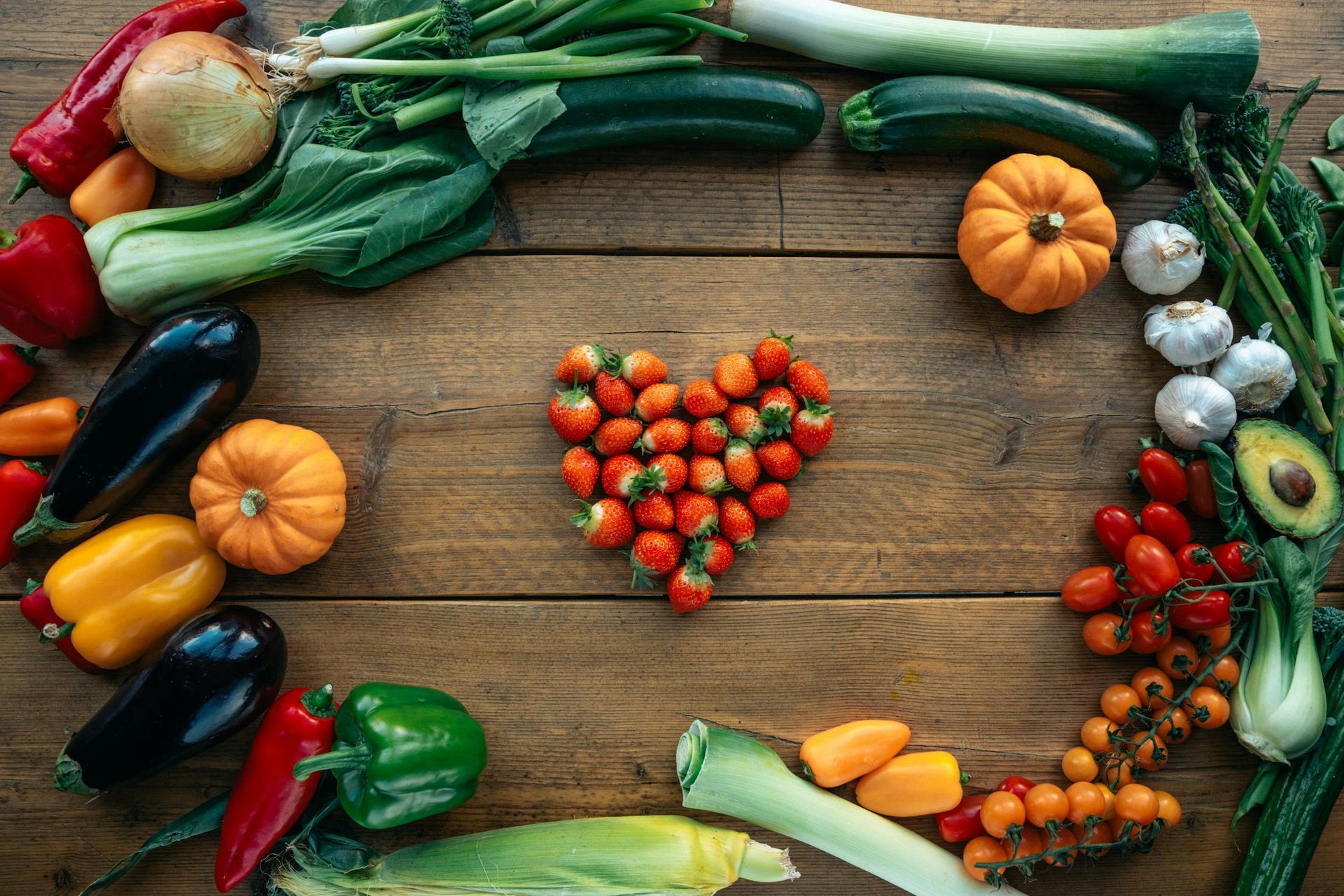
In today’s fast-paced world, it’s easy to overlook where our food comes from. With global supply chains and mass production dominating the market, many consumers find themselves disconnected from the source of their meals. However, a growing movement advocates for buying locally grown produce, highlighting its numerous benefits not just for consumers but for the environment and the community as well. In this blog, we will explore the top five reasons to choose locally sourced produce, emphasizing the freshness, sustainability, and positive community impact it fosters.

Farming at its core is about more than just food—it’s about passing on knowledge and inspiring future innovators in sustainable agriculture. At Fresh Harvest 365, we are dedicated to not only transforming how food is grown but also sharing our expertise with communities and students. By showcasing modern farming practices like container farming and sustainable methods, we aim to build stronger connections between people, their food, and the environment. Through these efforts, we’re cultivating awareness of food security, sustainability, and the future of farming.
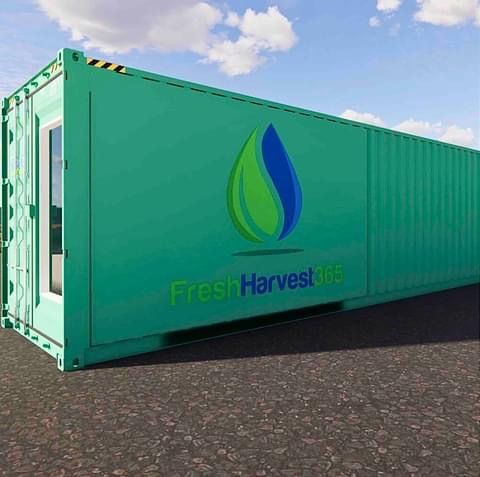
Millions of people worldwide consistently lack access to affordable, wholesome food, making food insecurity a serious problem. The world desperately needs innovative solutions as traditional farming is put under increasing strain by factors such as population expansion, economic instability, and climate change. Growing in popularity as a potential solution, container farming provides a means of growing fresh produce in areas where traditional agriculture is either impractical or not feasible.
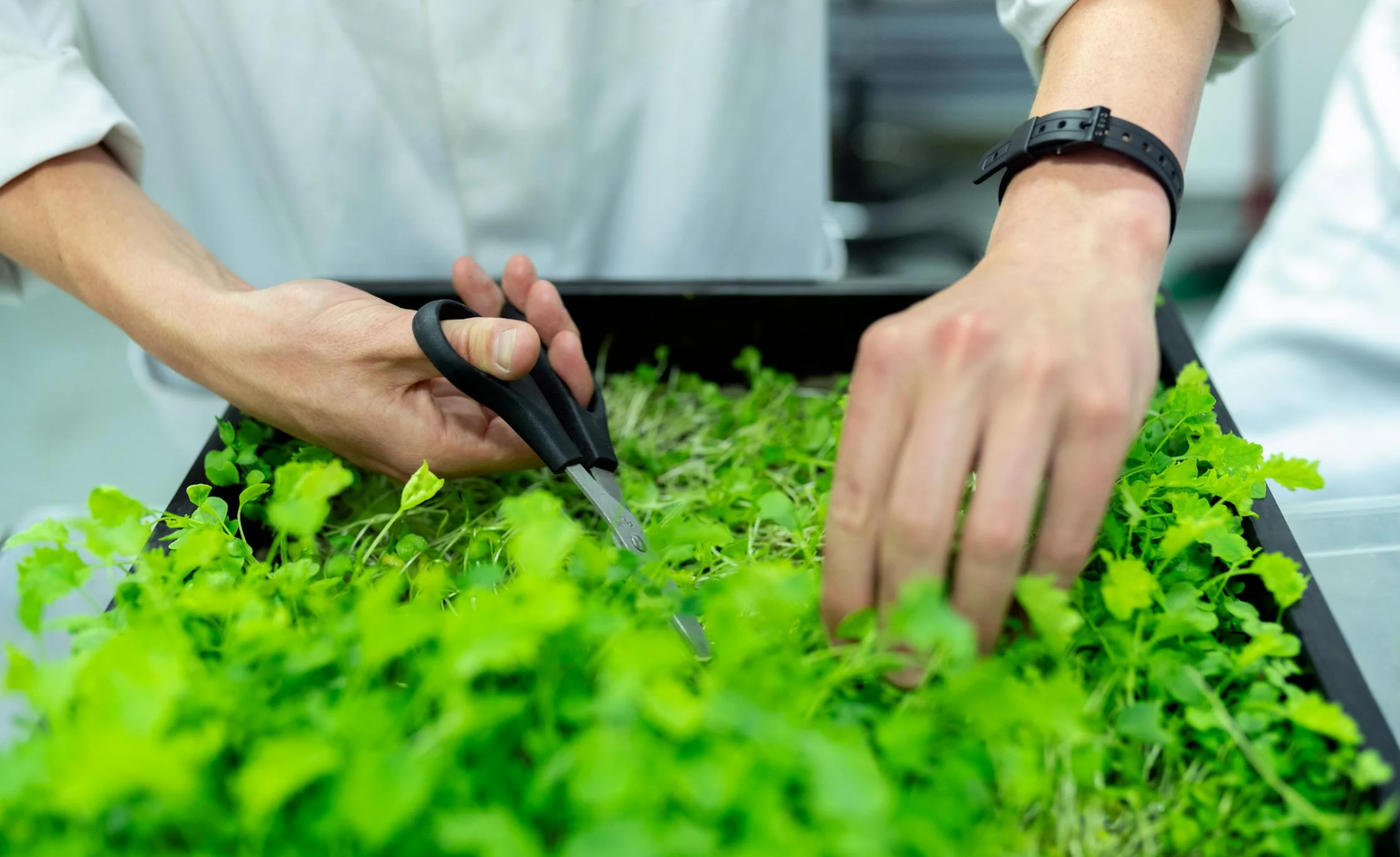
At Fresh Harvest 365, we think that creative, sustainable farming methods are what will shape food production in the future. Everything we do is motivated by our dedication to provide wholesome, fresh products while protecting the environment. By adopting hydroponic farming, we help create a healthier, more sustainable planet in addition to putting premium fruits and vegetables on your table. Come explore our hydroponic methods, hear about our motivational success stories, and learn about our important partnerships.
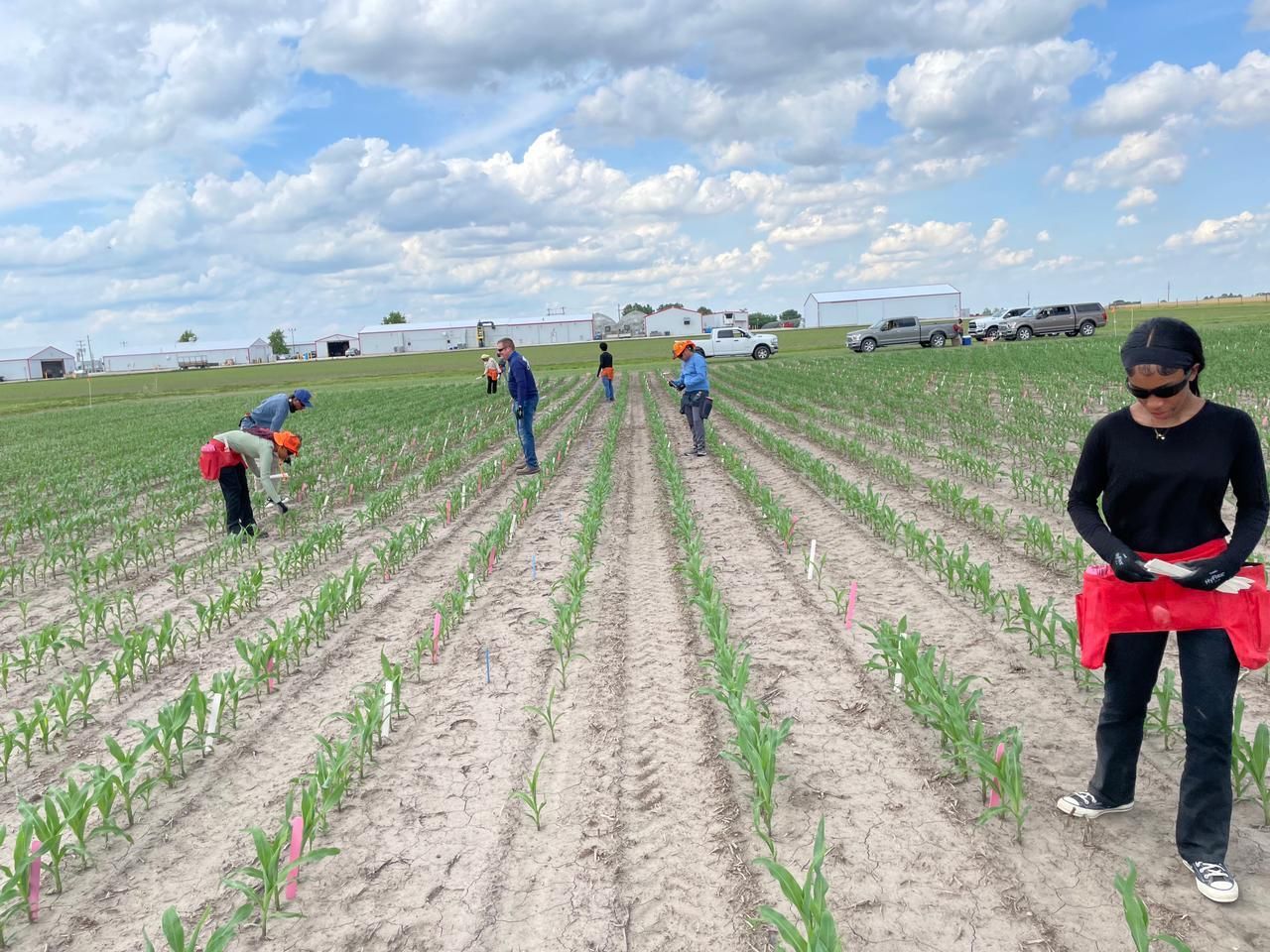
From the first week of June through the end of this month, Fresh Harvest 365 and University City High School (UCHS) have been immersed in an exciting journey with the F.A.R.M. (Future Agricultural Resource Managers) Summer Leadership Internship Program. This collaborative initiative has been a beacon for fostering a deep-rooted passion among select UCHS students for agribusiness, STEM, and sustainable food practices.
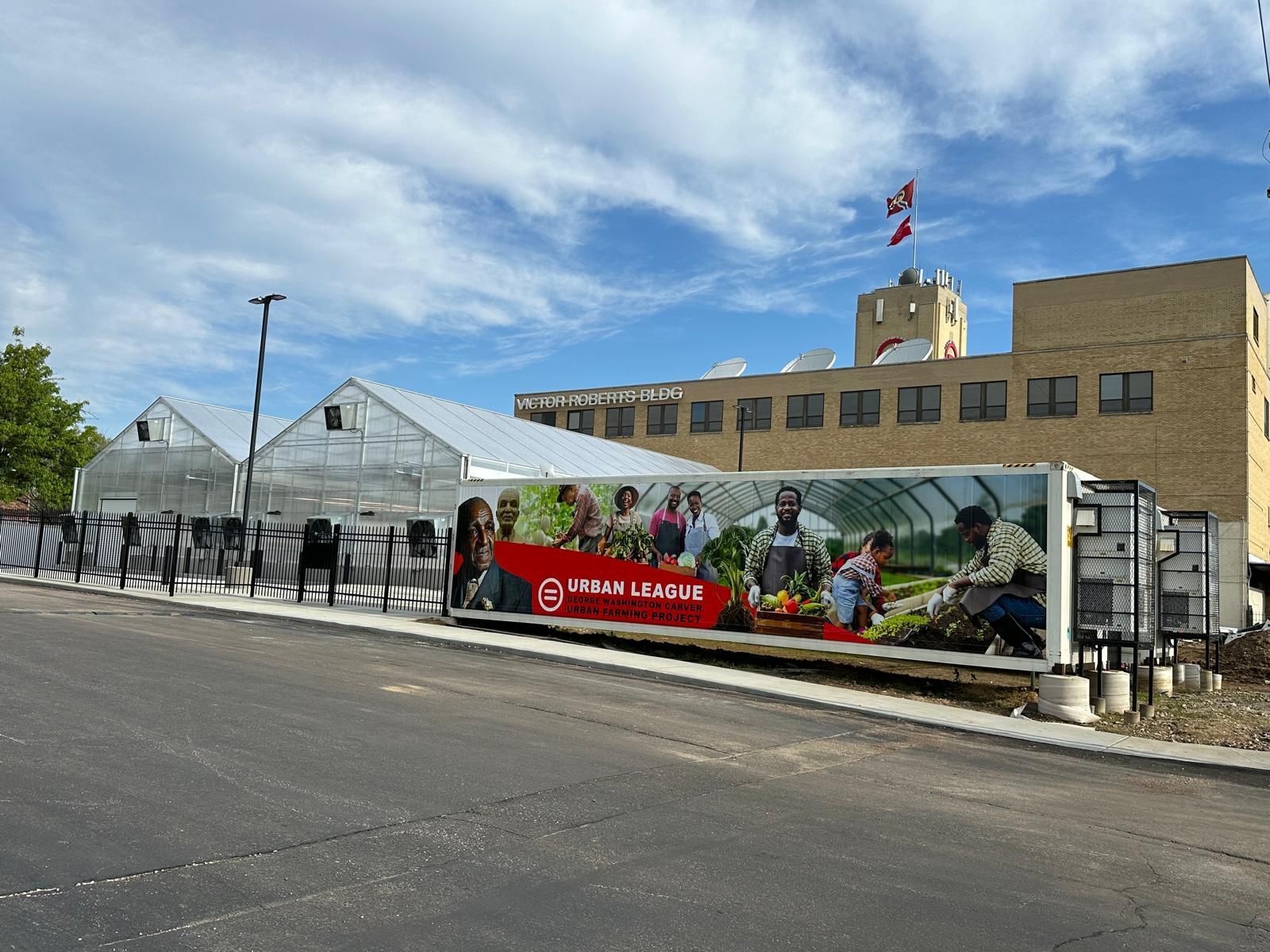
The multi-million dollar greenhouse at the Urban League Headquarters on Kingshighway, St. Louis, is officially open! In terms of urban farming and food security in our community, this cutting-edge facility is a huge milestone. In the center of St. Louis, Missouri, we have the potential to completely transform the food production and distribution process thanks to our state-of-the-art technology and dedication to using fresh, healthful produce. Dedicated to bringing fresh produce to local restaurants, schools, hospitals, and businesses, this state-funded greenhouse is a source of hope in a food desert area, as declared by Missouri Governor Mike Parson.

As modern agriculture evolves, gardeners and farmers alike are exploring innovative methods to grow their plants more efficiently. Two popular methods used are hydroponics and traditional soil gardening. Each has its own unique advantages and challenges, making it pivotal to understand which method best suits your needs. By understanding the differences between these two approaches, you can make informed choices on the best fit for your gardening goals.

Agriculture has always served as the cornerstone of food security with modern and traditional agricultural practices meshed together, passing down knowledge is pivotal to shaping and transforming the best farming practices and techniques. In today’s world of transformative and exciting opportunities, understanding agriculture has become more complex yet even more challenging for our future farmers. We’ve come to a point where traditional methods intersect with modern innovations. As we navigate this intersection, questions arise: Which path should we follow to ensure sustainability and productivity? How can we effectively integrate both approaches to meet the demands of a changing world while honoring age-old wisdom? Read on as we explore these questions and delve into the dynamic landscape of agricultural education.

